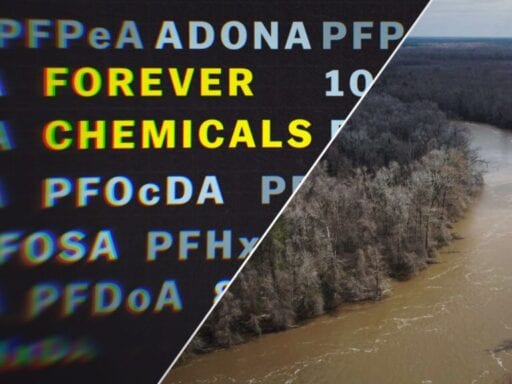Why 99 percent of Americans have these chemicals in their blood.
North Carolina’s Cape Fear River is a massive water system. It stretches across the lower half of the state, collecting runoff from 29 counties and providing water to millions of people. But in the city of Wilmington, where the river meets the Atlantic Ocean, residents are worried about the drinking water.
In a 2019 test of tap water, Wilmington and neighboring Brunswick County were among the top five areas for high levels of PFAS — per- and polyfluoroalkyl substances — a group of man-made chemicals commonly used for making nonstick or water-resistant products. The chemical class has been linked to health problems including cancer, and traces can be found in the blood of an estimated 99 percent of Americans.
Now, North Carolina is reckoning with the legacy of pollution upstream — and discovering what decades of PFAS contamination means for the rest of the country.
Watch the video above to see how PFAS products went from military technology to household staple, and why US chemical companies get away with regulating themselves.
You can find this video and all of Vox’s videos on YouTube. If you’re interested in supporting our video journalism, you can become a member of the Vox Video Lab on YouTube.
Support Vox’s explanatory journalism
Every day at Vox, we aim to answer your most important questions and provide you, and our audience around the world, with information that has the power to save lives. Our mission has never been more vital than it is in this moment: to empower you through understanding. Vox’s work is reaching more people than ever, but our distinctive brand of explanatory journalism takes resources — particularly during a pandemic and an economic downturn. Your financial contribution will not constitute a donation, but it will enable our staff to continue to offer free articles, videos, and podcasts at the quality and volume that this moment requires. Please consider making a contribution to Vox today.
Author: Christophe Haubursin
Read More



